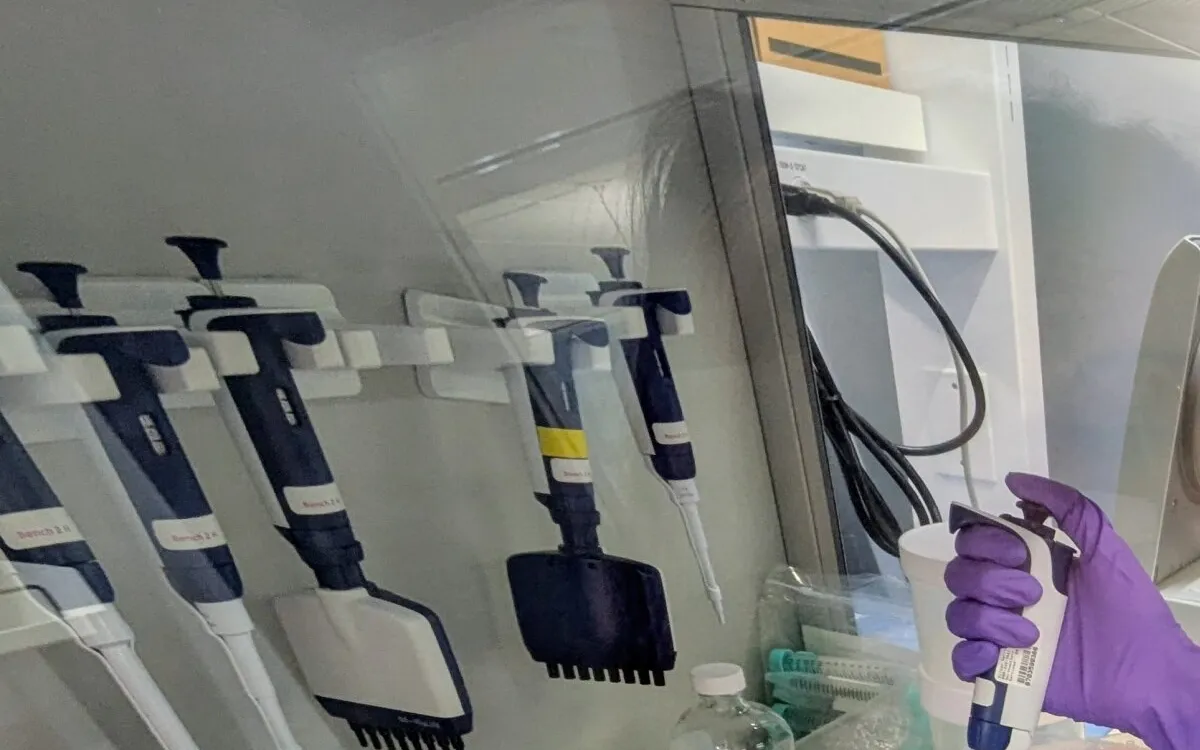
Pancreatic cancer is notoriously difficult to treat and often shows resistance to the most advanced immunotherapies available today. Recent research conducted by scientists at Northwestern Medicine has shed light on a significant mechanism behind this resistance: pancreatic tumors utilize a sugar-based disguise to evade detection by the immune system. The research team has also developed a pioneering antibody therapy that blocks this sugar-mediated 'don't attack' signal, potentially paving the way for new treatment options.
For the first time, the scientists have elucidated how this sugar trick operates. They demonstrated that blocking it with a monoclonal antibody can reawaken immune cells to target and attack cancer cells in preclinical mouse models. "It took our team about six years to uncover this novel mechanism, develop the right antibodies, and conduct thorough tests," stated study senior author Mohamed Abdel-Mohsen, an associate professor of medicine in the division of infectious diseases at Northwestern University Feinberg School of Medicine. "Seeing it work was a major breakthrough."
Pancreatic cancer ranks among the deadliest forms of cancer, often diagnosed at an advanced stage, with a dismal five-year survival rate of just 13%. The disease frequently resists immunotherapies that are effective against other cancer types. Within pancreatic tumors, the immune system's response is unusually suppressed. "We set out to learn why this occurs and whether we could alter that environment, allowing immune cells to attack tumor cells rather than ignoring or even aiding them," Abdel-Mohsen explained.
The research team discovered that pancreatic tumors hijack a natural safety system used by healthy cells. Under normal conditions, healthy cells express a sugar called sialic acid on their surface to signal to the immune system, "don't harm me." Interestingly, the scientists found that pancreatic tumors exploit this system by loading the same sugar onto a surface protein known as integrin α3β1. This sugar coating allows the protein to bind to a sensor on immune cells called Siglec-10, sending a misleading 'stand down' signal. "In essence, the tumor sugar-coats itself—a classic wolf-in-sheep's-clothing tactic—to escape immune surveillance," Abdel-Mohsen elaborated.
Upon uncovering this novel evasion mechanism, the Northwestern scientists developed monoclonal antibodies that effectively block it. In laboratory settings and two animal models, the application of these antibodies resulted in immune cells reactivating and consuming cancer cells. Tumors in treated mice exhibited significantly slower growth compared to untreated controls. "Creating those antibodies was no small feat. We screened thousands of hybridomas—cells that produce antibodies—before identifying the one that worked," Abdel-Mohsen noted.
The next goal for the research team is to combine this antibody therapy with existing chemotherapy and immunotherapy treatments. "There's a strong scientific rationale to believe that combination therapy will allow us to achieve our ultimate goal: complete remission," Abdel-Mohsen stated. "We aren't satisfied with merely a 40% tumor reduction or slowing down; we aim to eliminate the cancer entirely."
Abdel-Mohsen mentioned that the team is now refining the antibody for human use and preparing for early safety and dosing studies. Concurrently, they are testing the antibody in combination with chemotherapy and immunotherapy while developing a companion test to identify which patients' tumors rely on this sugar-based pathway. This will enable clinicians to match the right patients with the appropriate therapy. Abdel-Mohsen estimates that it may take about five years before such a therapy becomes available to patients, provided that progress continues as planned.
Beyond the immediate implications for pancreatic cancer, the findings from this study could have wider applications. Abdel-Mohsen's team is investigating whether the same sugar-coating trick is present in other challenging cancers, such as glioblastoma, and in non-cancer diseases where the immune system is misled. His lab is deeply engaged in the emerging field of glyco-immunology, which studies how sugars influence the immune system. "We're just scratching the surface of this field," he remarked. "Here at Northwestern, we are positioned to transform these sugar-based insights into tangible treatments for cancer, infectious diseases, and aging-related conditions."
Abdel-Mohsen is a proud member of the Robert H. Lurie Comprehensive Cancer Center of Northwestern University, where groundbreaking research continues to push the boundaries of cancer treatment.